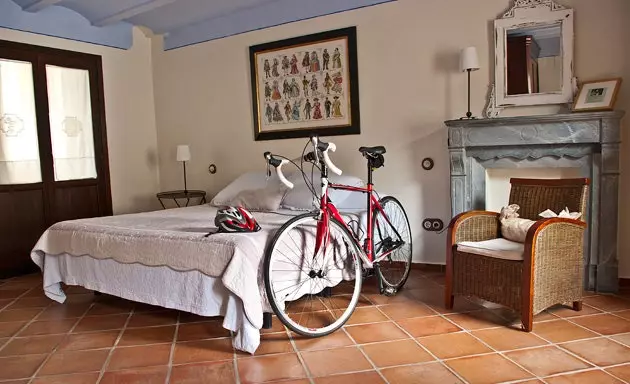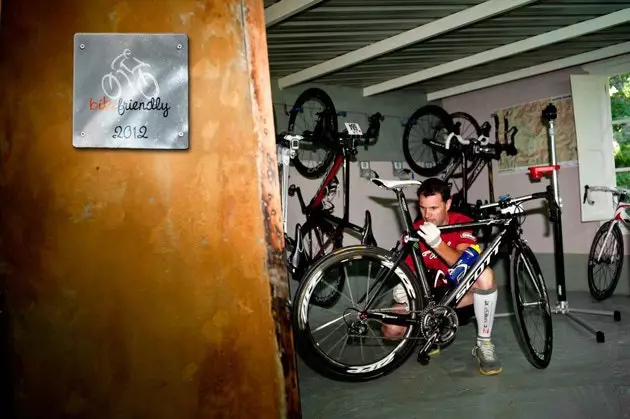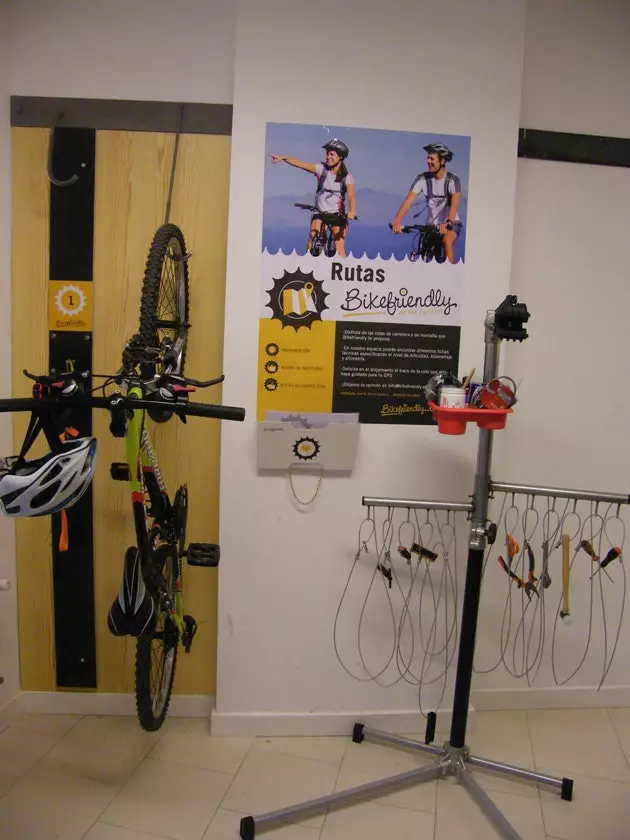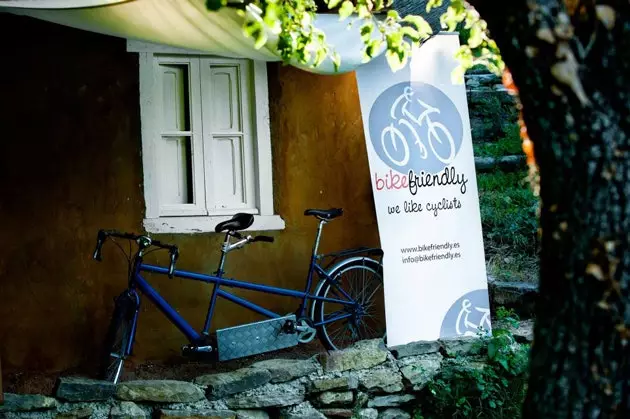
The Farmhouse of Fatás, a pioneer in being Bikefriendly
And it is that many cyclists find that they never have a suitable place to leave your bikes , not to mention repairing them or finding out how to make new routes on wheels. The idea of the bikefriendly seal came up a year and a half ago, during a meal with friends in Roda de Isábena, who decided to do something to tackle this problem. Today the network has more than 30 lodgings spread all over the Pyrenees . Here we find everything from large luxury hotels to small rural houses. " Cycle tourism covers all types of clients, from the one that moves at the hostel level, to the one that values a good spa and a fantastic dinner in a five-star restaurant. For this reason, the network is made up of accommodation as varied as the Almadraba Park Hotel, a four-star hotel, or El Caserío de Fatás, a small, charming, family-run rural house", he tells us. Ruth Parres , one of the partners. "All hotels are compatible with the good care of the guest's bike, a client more mountaineer or more of great luxury , but always, deep down, a cyclist ”, adds this Catalan.
For a hotel to be considered bike-friendly, it is not enough that they allow bicycles to enter the accommodation. This must also have a series of basic requirements and services that make it a real space where the cyclist (and especially his bike) can stay comfortably.

A place to tune up the bike.
Cyclists staying at a hotel with this seal will find basic services (and some extras) such as:
1. A bike storage space
Every bike-friendly hotel must offer a place to safely leave the bicycle during the stay. The minimum area of this space (sometimes integrated into the workshop) must be five square meters and have capacity for at least four bicycles . Easily accessible, it must have racks to hang the bike and have security devices to prevent theft.
two. A workshop
In order to get the bicycle ready before embarking on a new trip, the hotel must have a workshop to repair the small setbacks that may arise. The workshop will have the necessary tools, accessories and additional information regarding specialized stores (in case a specific piece is necessary), workshops outside the accommodation, etc.
3. bike wash
To remove the mud or those small stones that remain on the bicycle, it is essential that the accommodation has a space for washing with pressurized water with adequate power so as not to damage any component of the bike. This space can be found in an open-air or covered area, but always well ventilated, near the workshop and bike storage spaces. Cleaning and drying some of the bicycle parts is very important in order to prevent future mechanical problems during the trip.

Bikefriendly space of Hotel Tierra de Biescas
Four. Bikefriendly Ambassador
Every self-respecting bike-friendly hotel must have a person, be it the owner, the receptionist or the person in charge of the cyclist-friendly space, who offer information on the different cycle routes that can be done in the area , its tourist attraction, cultural, gastronomic data, etc. In short, a true guide for lovers of two wheels.
5. Informative material
The cyclist who arrives at a bike-friendly accommodation must have information on at least three routes for road bikes and another three for mountain bikes. Within the workshop space, brochures and guides are usually offered on the different routes to pedal around the accommodation.
6.**Other services (according to accommodation) **
Other extra services that cyclists can benefit from are: GPS rental, guides, massage service, spa, isotonic food and drinks, necessary products for the trip (chains, spare parts, lubricants or inner tubes) and a transfer service. of luggage between the hotels, very practical to unload the panniers during the trip.

Here the pampered customer is the bicycle.
The vast majority of Bikefriendly accommodations are located in the Trans-Pyrenean Route , although Rut and his associates work to create new lodging networks in the different routes of the National Way of Saint James, the Sierra de Gúdar (in Teruel), the Vía de la Plata Y Trans Al-Andalus . “When it comes to implementing bike-friendly accommodation, we take a good look at the type of cycling route that can be developed in that territory: a wine route, a gastronomic route, a Romanesque route... These routes serve as a point of union between the accommodations. Our work also serves to revitalize the area by promoting its different tourist interests. Spain is a potential cycling tourist in itself , every area has something interesting that can be visited by bicycle”, she assures.
The bicycle-friendly accommodation network also seeks to meet the needs of cyclists who travel to the big cities . According to Rut, "although some of the services may be somewhat different, the concept is the same". They will be known as accommodation Bike-friendly Urban.
